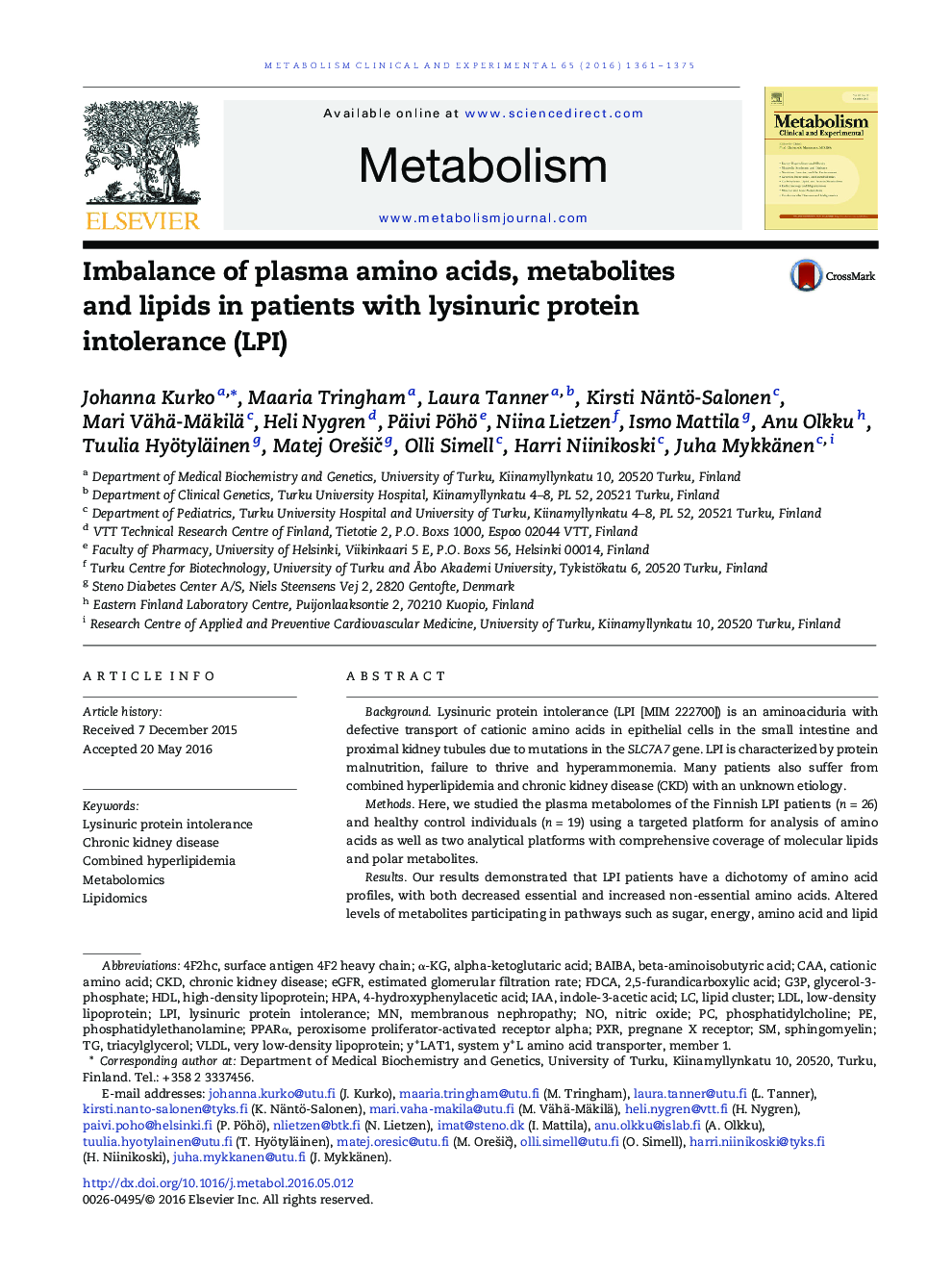| کد مقاله | کد نشریه | سال انتشار | مقاله انگلیسی | نسخه تمام متن |
|---|---|---|---|---|
| 5902948 | 1157042 | 2016 | 15 صفحه PDF | دانلود رایگان |

BackgroundLysinuric protein intolerance (LPI [MIM 222700]) is an aminoaciduria with defective transport of cationic amino acids in epithelial cells in the small intestine and proximal kidney tubules due to mutations in the SLC7A7 gene. LPI is characterized by protein malnutrition, failure to thrive and hyperammonemia. Many patients also suffer from combined hyperlipidemia and chronic kidney disease (CKD) with an unknown etiology.MethodsHere, we studied the plasma metabolomes of the Finnish LPI patients (n = 26) and healthy control individuals (n = 19) using a targeted platform for analysis of amino acids as well as two analytical platforms with comprehensive coverage of molecular lipids and polar metabolites.ResultsOur results demonstrated that LPI patients have a dichotomy of amino acid profiles, with both decreased essential and increased non-essential amino acids. Altered levels of metabolites participating in pathways such as sugar, energy, amino acid and lipid metabolism were observed. Furthermore, of these metabolites, myo-inositol, threonic acid, 2,5-furandicarboxylic acid, galactaric acid, 4-hydroxyphenylacetic acid, indole-3-acetic acid and beta-aminoisobutyric acid associated significantly (P < 0.001) with the CKD status. Lipid analysis showed reduced levels of phosphatidylcholines and elevated levels of triacylglycerols, of which long-chain triacylglycerols associated (P < 0.01) with CKD.ConclusionsThis study revealed an amino acid imbalance affecting the basic cellular metabolism, disturbances in plasma lipid composition suggesting hepatic steatosis and fibrosis and novel metabolites correlating with CKD in LPI. In addition, the CKD-associated metabolite profile along with increased nitrite plasma levels suggests that LPI may be characterized by increased oxidative stress and apoptosis, altered microbial metabolism in the intestine and uremic toxicity.
Journal: Metabolism - Volume 65, Issue 9, September 2016, Pages 1361-1375